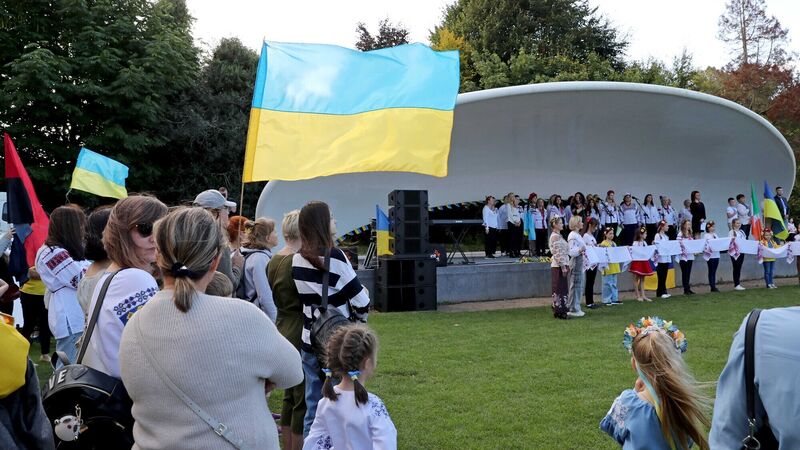Ciara Phelan: Government to reduce housing support for refugees as election looms

Ukrainian Independence Day celebrations at Fitzgerald's Park, Cork. Ireland is an outlier in terms of the accommodation and social welfare support offered to those fleeing Russia’s brutal war. Picture: Jim Coughlan
The next few months will be pivotal for the Government as it begins to make changes to how the State supports people who are fleeing war.
Ireland has been praised, both here and abroad, for its response to the humanitarian crisis that ensued after Russia invaded Ukraine almost two years ago.
















